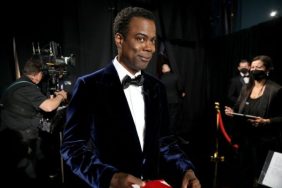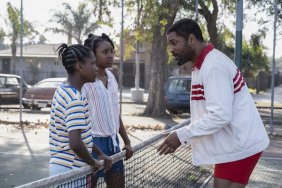“Today is Martin Luther King’s birthday and I can’t help but ask the question, is it time that people of color recognize how much power, influence that we have amassed, that we no longer need to ask to be invited anywhere?”
Those are the words of Jada Pinkett Smith, who today took to the internet and declared that she would be boycotting the 88th annual Academy Awards. She will neither attend the event nor watch the telecast. And she’s not alone.
Related: #OscarsSoWhite | Academy Award-Worthy Actors of Color from 2015
Spike Lee also announced that he will also not be attending this year’s Oscars, even though the Academy has only just bestowed him with a (well-deserved) lifetime achievement award. “We Cannot Support It And Mean No Disrespect To My Friends, Host Chris Rock and Producer Reggie Hudlin, President Isaacs And The Academy. But, How Is It Possible For The 2nd Consecutive Year All 20 Contenders Under The Actor Category Are White?” said Lee in an Instagram posting today (using all-capitalized words).
We must stand in our power.
Posted by Jada Pinkett Smith on Monday, January 18, 2016
The impetus for both Jada Pinkett Smith and Spike Lee's Oscars boycott is what has become commonly known as #OscarsSoWhite. For two years in a row, every single one of the Oscar nominees - in all four acting categories - have been white actors. The issue is not localized to the acting categories, as Lee acknowledges, but even so, actors have long been the face of the entertainment industry and as such, the lack of diversity within the performances that the Oscars have chosen to acknowledge as the year's best has indeed been troubling. Especially since this year, in particular, there was no shortage of exceptional work done by actors and filmmakers of color in a wide variety of films.
Jada Pinkett Smith acknowledges that the Academy - which only two years ago was 94% white, 76% male and averaged 63 years old (although they recently expanded their ranks in an attempt to update those demographics) - can honor anybody they please. But she also makes the reasonable point that if their interests don't align with your own, you don't have to go to them or even watch them, whether you are involved in Hollywood or not.

A report from Entertainment Weekly took Spike Lee up on his offer to ask white Academy members about the diversity problem at the Oscars, since he gets asked about them every single year. The publication focused their questioning around the snub of Straight Outta Compton - an acclaimed biopic about the rap group N.W.A., which should theoretically have been right up the Oscars' alley - and received comments from a director and a producer who theorized that the Academy's older members didn't bother seeing it, either because they assumed that it wasn't for them or because they were actively biased against a musical group that famously sang "Fuck The Police." Other members postulated that the Academy's ranked balloting system was to blame, and that the popular film may have received a lot of votes but not enough in the #1 or #2 slots, which are necessary to make the Best Picture cut off.
Perhaps most important of all is the issue that Spike Lee raised in his posting, namely that the problem goes further than a simple awards body, and extends to the studios themselves. Lee wrote...
"The Academy Awards Is Not Where The "Real" Battle Is. It's In The Executive Office Of The Hollywood Studios And TV And Cable Networks. This Is Where The Gate Keepers Decide What Gets Made And What Gets Jettisoned To "Turnaround" Or Scrap Heap. This Is What's Important. The Gate Keepers. Those With "The Green Light" Vote. As The Great Actor Leslie Odom Jr. Sings And Dances In The Game Changing Broadway Musical HAMILTON, "I WANNA BE IN THE ROOM WHERE IT HAPPENS". People, The Truth Is We Ain't In Those Rooms And Until Minorities Are, The Oscar Nominees Will Remain Lilly (sic) White."
Whether you personally plan to boycott the Oscars or not, surely we can all agree that the studios and filmmakers who reach the largest audience, and who influence the way we view art and society, shouldn't be dominated by any single group. Whether consciously or subconsciously, there is an excellent chance that a serious bias still permeates throughout the entire entertainment industry, and that it is directly affecting the films that get made as well as those that Hollywood chooses to honor as being representative of the industry's finest work.
If a boycott can help call attention to a genuine institutional problem, and pave the way for important change, then maybe it really is for the best. The debate will continue, and it needs to.
Top Photo Credit: Jada Pinkett Smith
William Bibbiani (everyone calls him ‘Bibbs’) is Crave’s film content editor and critic. You can hear him every week on The B-Movies Podcast and watch him on the weekly YouTube series Most Craved and What the Flick. Follow his rantings on Twitter at @WilliamBibbiani.








